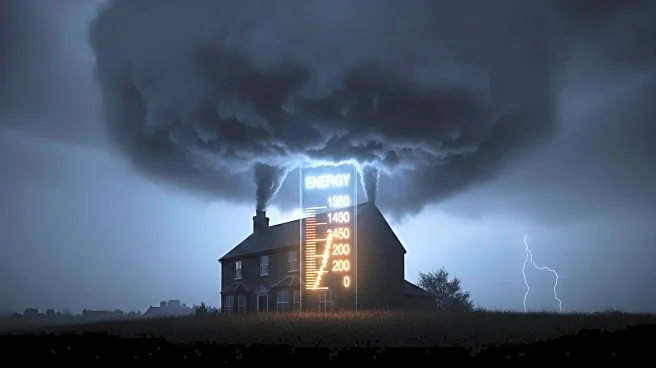What is the story about?
What's Happening?
The energy crisis in Great Britain continues to escalate as the industry regulator, Ofgem, reports that energy debts have reached a record high of £4.4 billion as of June. This increase comes amid a 2% rise in the energy price cap, affecting millions of households. Despite a decrease in wholesale gas prices, the cap for a typical annual dual-fuel bill has risen to £1,755, which is significantly higher than pre-crisis levels. The End Fuel Poverty Coalition warns of severe consequences, including winter deaths and increased pressure on the NHS due to poorly heated homes. Energy suppliers like E.ON have offered discounts and debt support, but the scale of the problem remains daunting.
Why It's Important?
The rising energy debts and increased price cap highlight the ongoing financial strain on British households, with many unable to pay their bills. This situation poses a significant risk to public health and economic stability, as vulnerable populations face harsh winter conditions. The government's efforts to subsidize costs and improve energy efficiency are crucial, but the current measures may not be sufficient to address the growing debt crisis. The need for targeted support and market reforms is urgent to prevent further economic and social repercussions.
What's Next?
Ofgem is working with the government and industry on a proposed debt relief scheme, expected to be finalized by the end of the year. The government plans to expand the Warm Home Discount to assist around 6 million households. However, organizations like Citizens Advice argue that more comprehensive support is needed for low-income families. The focus will be on improving energy efficiency and implementing market reforms to reduce bills in the long term.















